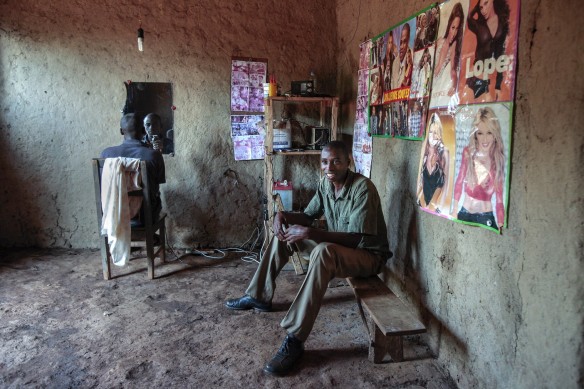
Meet Sam, the barber from Nyabikenka
Sam Nsengimana was 7 when news of his mother’s murder came through the radio. By the time the genocide was over less than three months later 800,000 people had been killed in just 100 days.
Sam, who fled to Tanzania with a relative, was one of the lucky ones. “I grew up in an orphanage and no one to help me,” says the 27-year-old. He later returned to Rwanda and moved in with his grandparents in Nyabikenka village, Eastern Province, where he still lives today. The better life he’d been hoping to find was elusive at first.
Moving forward, slowly

Rwanda is a study in contrasts. On one hand, the east African country of 11.5 million was a rare MDG success story, posting significant gains across the board. With primary school enrolment comfortably above 98 percent, for example, it’s no wonder that the UNDP calls the country “especially impressive”. On the other hand, more than a third of Rwandans live in extreme poverty, particularly in rural areas.
Until recently, Sam – along with his daughter, brother and 76-year-old grandmother Marie – was one of them. Sure, the family of farmers earned an income during harvest. But in between yields, for four months at a time, they had nothing. “I couldn’t even afford health insurance or a mattress to sleep on,” says Sam. Then, in 2011, he joined a Village Savings and Loan Association organised by Hand in Hand field partner CARE.
A helping hand
The going was tough to begin with. Some months, Sam couldn’t afford his contribution to the group’s savings fund. But he persisted, and eventually borrowed 250,000 RWF (US $365) to set up a barbershop. Thanks in part to help from his Hand in Hand trainer, it’s been a massive success. “I’ve never been able to have 100,000 RWF (US $148) in my pocket,” he says. “Today I can count up to 200,000 RWF (US $295).”
With side businesses in farming and mobile phone charging, Sam has been able to hire an employee from outside his family, furnish the family home and put money aside for his daughter’s education. He also has plans to open a second barbershop in the nearby town of Kabarandou and start yet another business selling produce.
“I live a better life today,” he says. “I have peace of mind.”
Sam’s results
Hand in Hand Eastern Africa and CARE Rwanda are co-operating to empower some 80,000 Rwandans, mostly women, to work their way out of poverty by running their own sustainable businesses. The three-year, US $3.2 million partnership is grounded in our shared belief in the power of entrepreneurship to fight poverty.
Next case study: Meet Gloria, the former refugee growing crops – and profits
